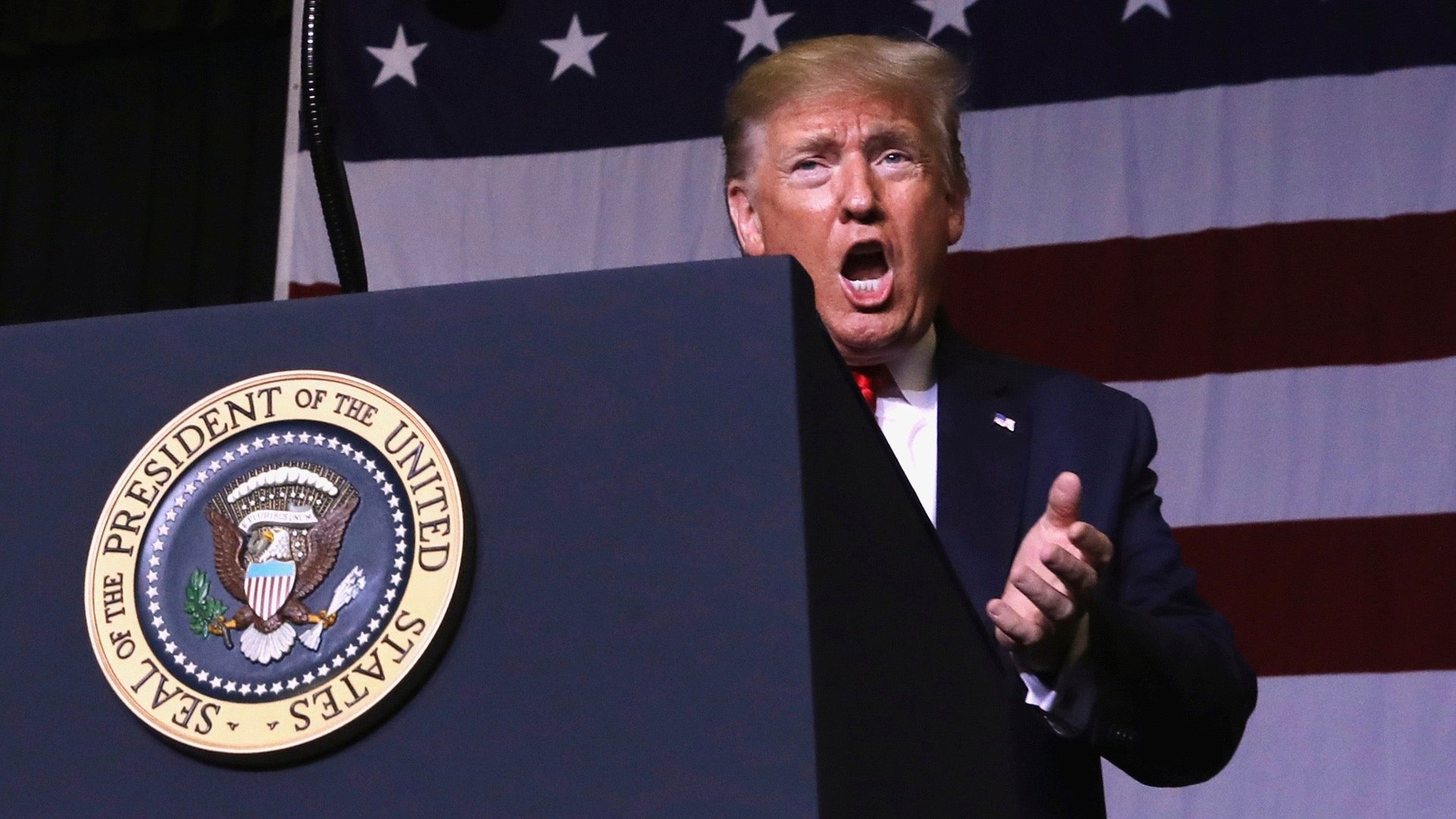Why Trump’s “state of mind” will be key in impeachment
It is often said that the road to hell is paved with good intentions. Nonetheless, Senate Republicans are increasingly aiming to change the focus of the impeachment inquiry into Donald Trump’s Ukraine dealings to the executive’s intent, rather than his actions.


It is often said that the road to hell is paved with good intentions. Nonetheless, Senate Republicans are increasingly aiming to change the focus of the impeachment inquiry into Donald Trump’s Ukraine dealings to the executive’s intent, rather than his actions.
Trump is being investigated by the House for allegedly withholding funds from Ukraine in exchange for a personal favor. Based on the record of a phone call he disclosed, he asked Ukrainian president Volodymyr Zelensky to investigate his political rival Joe Biden, a 2020 presidential candidate and former vice president. Trump has continually said, however, that there was no “quid pro quo,” meaning that he didn’t withhold the funds in order to force Ukraine’s hand.
But at least six people who’ve testified before House investigators have said otherwise. Acting White House chief of staff Mick Mulvaney publicly admitted to a quid pro quo last month, saying it was entirely legitimate to condition foreign aid. He then tried to walk back his assertions.
Now, it seems that Mulvaney’s perspective could save the president if the House votes on articles of impeachment and Trump is brought to trial in the Senate.
The Washington Post reports that at a lunch for Republican senators this week, there was much discussion of admitting quid pro quo. Rather than continuing to deny that the president premised aid on a favor, GOP lawmakers—who will serve as jurors in a possible Senate trial—are leaning toward saying it did happen, but that there’s no problem with it.
Louisiana’s John Neely Kennedy advanced a similar view in an interview with the publication, stating, “To me, this entire issue is gonna come down to, why did the president ask for an investigation. To me, it all turns on intent, motive…Did the president have a culpable state of mind?”
Kennedy is using the language of criminal law, laying the groundwork to justify a finding that Trump is not guilty of an impeachable offense. Mens rea, Latin for “state of mind,” is one of two elements of a crime. It asks whether defendants had the requisite intent for conviction. To prove most crimes, prosecutors must show the defendant committed a proscribed act and did so with a guilty mind—ill intent—with the exception of a very few strict liability offenses, like statutory rape.
For example, if someone is charged with murder but was involved in an accidental death, the defendant wouldn’t have the requisite intent to be convicted. But if the same person was charged with manslaughter for the same act, they could be found guilty if the accident happened due to their negligence because the level of intent that must be shown is different.
When it comes to quid pro quo for foreign aid, the president’s defenders are saying that the real question isn’t whether he conditioned it on Ukraine doing a favor—because aid is often conditional—but on whether that favor was requested on behalf of the nation because Trump is fighting corruption or because his own intentions were corrupt and he sought to personally benefit. With this, they make the case a little more nuanced and harder to prove than just showing the president made moves to withhold money while asking for a favor.
Trump, for his part, is keeping it simple, unlike Republican senators shifting the spin on quid pro quo so that they can plausibly find him not guilty. In a tweet on Nov. 1, the president issued a short defense, declaring, “You can’t Impeach someone who hasn’t done anything wrong!”